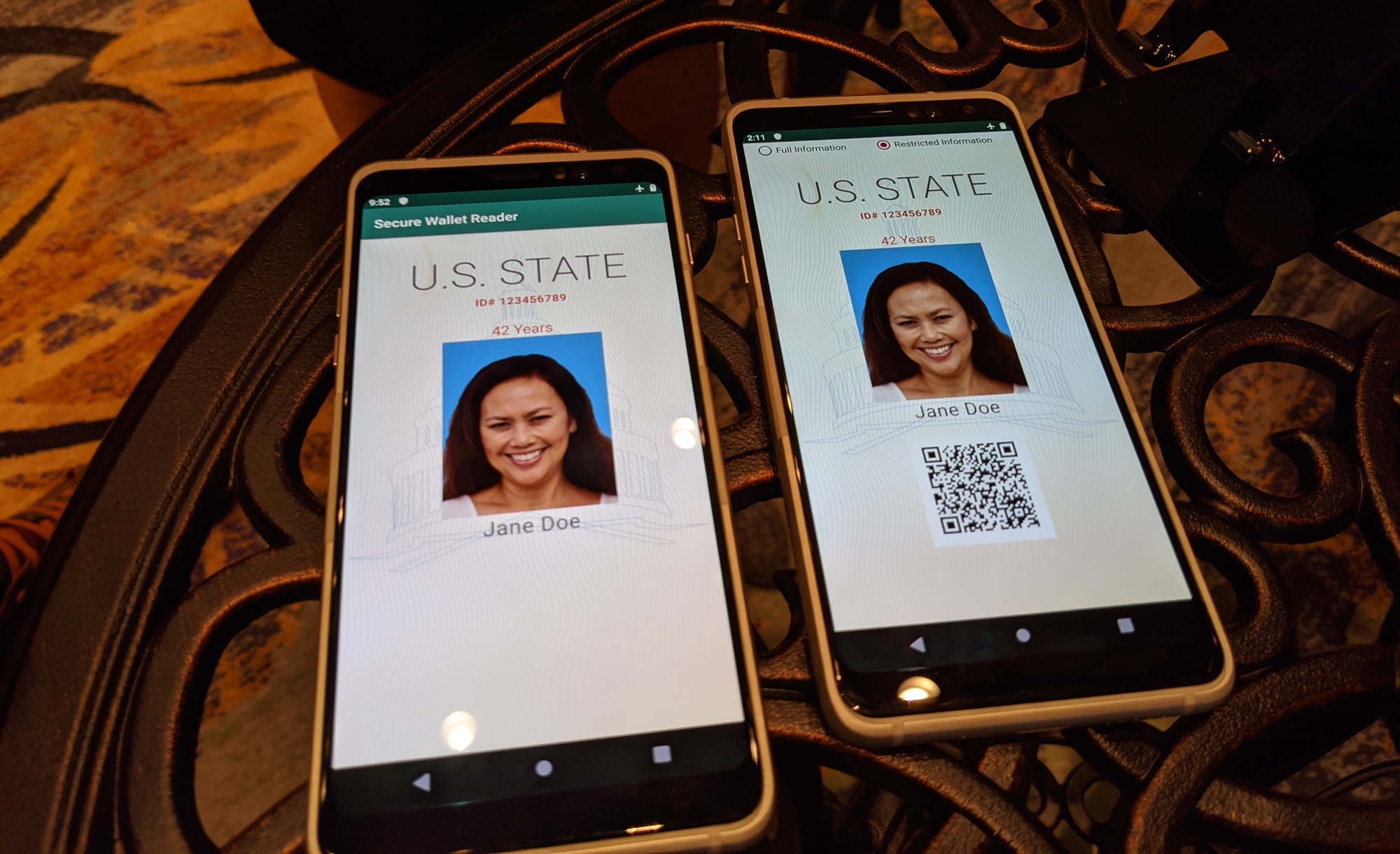Qualcomm, Google could soon turn your smartphone into your ID
Qualcomm tips off an Android R security feature

Here at Tom’s Guide our expert editors are committed to bringing you the best news, reviews and guides to help you stay informed and ahead of the curve!
You are now subscribed
Your newsletter sign-up was successful
Want to add more newsletters?

Daily (Mon-Sun)
Tom's Guide Daily
Sign up to get the latest updates on all of your favorite content! From cutting-edge tech news and the hottest streaming buzz to unbeatable deals on the best products and in-depth reviews, we’ve got you covered.

Weekly on Thursday
Tom's AI Guide
Be AI savvy with your weekly newsletter summing up all the biggest AI news you need to know. Plus, analysis from our AI editor and tips on how to use the latest AI tools!

Weekly on Friday
Tom's iGuide
Unlock the vast world of Apple news straight to your inbox. With coverage on everything from exciting product launches to essential software updates, this is your go-to source for the latest updates on all the best Apple content.

Weekly on Monday
Tom's Streaming Guide
Our weekly newsletter is expertly crafted to immerse you in the world of streaming. Stay updated on the latest releases and our top recommendations across your favorite streaming platforms.
Join the club
Get full access to premium articles, exclusive features and a growing list of member rewards.
WAILEA, Hawaii — Qualcomm's annual tech summit is usually a time when we learn about all the features coming to its variety of processing platforms, especially the next chipsets powering top smartphones. But this week, Qualcomm also tipped us off to a security feature coming to the next version of Android.
Qualcomm and Google are working on a new feature for Android R supported by Google's mobile processors that would make it possible to store identification cards — state IDs, driver's licenses, even employee passes for workplaces — within the Qualcomm Processor Security portion of your phone's processor. The idea is to do away with the need of carrying physical ID cards around just like your mobile wallet removes the need to have a physical credit card on hand.
In a demo shortly after Qualcomm unveiled its new Snapdragon 865 processor for next year's flagship Android phones, we saw how a phone containing a digital driver's license could be scanned by another handheld device — think of how airlines check you in with a mobile boarding pass at the airport, only extend that concept to IDs as well, and you've got a good picture of what Qualcomm was showing off here.
The technology is certainly there, explained Jesse Seed, a senior director of product management for Qualcomm. The tough part will be to get government agencies and business to add support for this kind of functionality.
Users may have their concerns, too, about storing even more personal details on their phones — especially personal details that give someone everything they need to identify you — even if that information is kept in a secured part of a smartphone. "Whenever we expand functionality, we have to be cognizant of potential risks," Seed said.
To that end, this new feature looks like it has a more discrete mode that only shows relevant identification info. In the demo I saw, the on-device ID contained just a picture, name and age; other details, like your address, would presumably be hidden from view unless they're absolutely needed.
So what if you happen to lose your phone where all those identification cards are now stored? "If you lose your wallet, you lose your physical ID that's always out there," Seed noted. "It's easy to revoke a digital ID."
Get instant access to breaking news, the hottest reviews, great deals and helpful tips.
While this new security feature was included in a keynote introducing us to the Snapdragon 865 and the demo I saw was being conducted on an 865-powered reference device, it may not necessarily be restricted to only flagship Android phones powered by this new chipset. This sounds like a feature that could be included in other Qualcomm processing platforms that run Android R.
Google typically launches an early developer beta for its new Android version in the spring, at which time we learn about some of the features headed to Android phones later that year. Google does a full reveal of Android's new features and enhancements during its annual developer conference, typically held in May. We should find out by then more about this Qualcomm-Google effort to bring physical IDs into the digital world.
Philip Michaels is a Managing Editor at Tom's Guide. He's been covering personal technology since 1999 and was in the building when Steve Jobs showed off the iPhone for the first time. He's been evaluating smartphones since that first iPhone debuted in 2007, and he's been following phone carriers and smartphone plans since 2015. He has strong opinions about Apple, the Oakland Athletics, old movies and proper butchery techniques. Follow him at @PhilipMichaels.
 Club Benefits
Club Benefits











